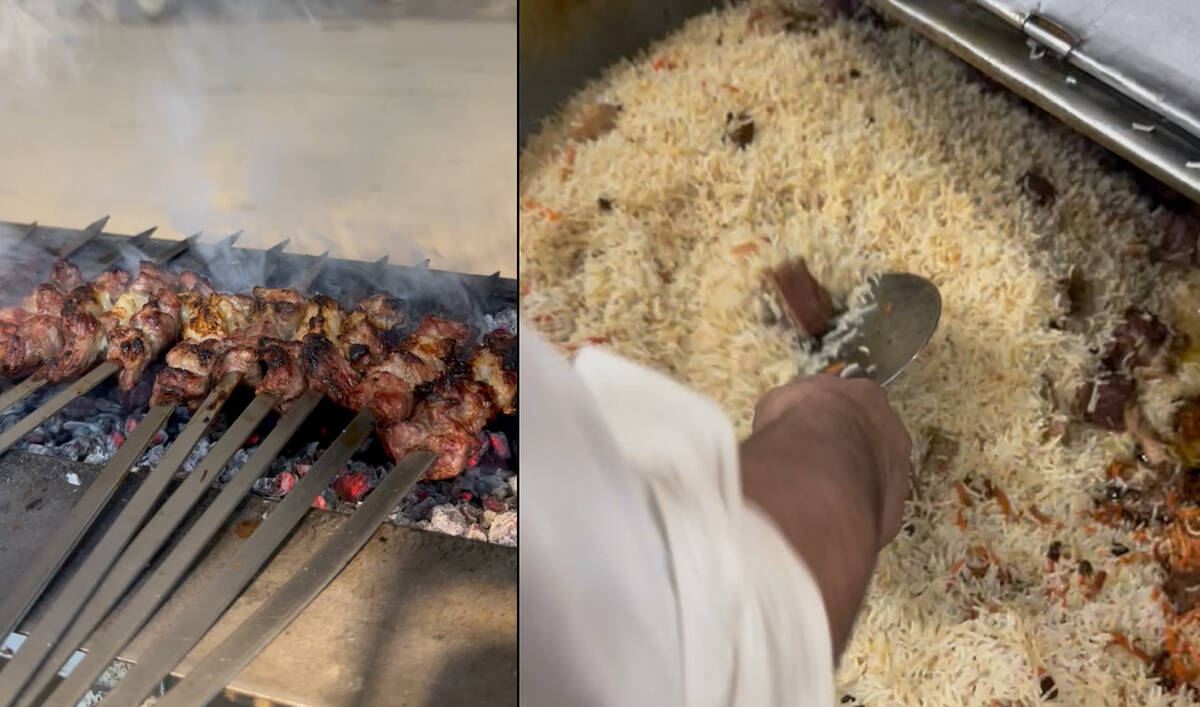ISLAMABAD/KARACHI: In a bustling corner of IslamabadÔÇÖs F-10 Markaz, the scent of sizzling oil and green chili chutney once signaled the presence of Afghan street food.
Today, the aroma is gone and so are the stalls that created it ÔÇö the hum of grills and laughter and life.
ÔÇťThere used to be a few [Afghan fries stalls] around my neighborhood and then one morning, they just upped and left,ÔÇŁ said Hamza Nofil, 28, who used to daily have the crinkle-cut, ridged, and golden chips, always served with the signature green chutney.
ÔÇťSo, you know, it breaks my heart.ÔÇŁ

This combination of photos shows two Afghan-run food stalls in Islamabad. (AN Photo)
The heartbreak is shared by many in PakistanÔÇÖs urban centers where those fries, and the people who served them, were part of a larger story ÔÇö of exile, adaptation and community ÔÇö that is now vanishing as a result of a sweeping deportation drive targeting Afghan nationals.
Since November 2023, Pakistan has expelled nearly one million Afghans as part of a crackdown on undocumented foreigners. The government has also not renewed Proof of Registration (PoR) cards for 1.4 million Afghan refugees, allowing their legal stay to lapse in June 2024.
While the policy has drawn criticism from rights groups and international powers, it is the quieter losses, of flavor, memory, and a sense of belonging, that now echo through city markets and street corners.
Among the casualties are the street food stalls, modest, smoky kitchens on wheels, where generations of Afghan refugees introduced Pakistanis to flavors from across the border: the fries dunked in secret chutney, paratha-wrapped burgers and mounds of Kabuli Pulao rice heaped with raisins, nuts and slow-cooked beef.
Shahid Ali, 22, a Pakistani vendor in F-10, said he remembered when there were six or seven Afghan fries stalls in the area, as well as those selling Afghan burgers wraps packed with shredded chicken or kebab, slathered with sauces and served in paratha.
ÔÇťYou wonÔÇÖt see any Afghans around here because the government sent them back to Afghanistan,ÔÇŁ Ali said.
As Afghan families depart, Pakistani vendors have tried to mimic the recipes but something vital has been lost.
ÔÇťWe are missing them [Afghan food stalls],ÔÇŁ said Iqra, 29, a banker who only gave her first name. ÔÇťI will definitely miss them, especially their green chutney. I loved that.ÔÇŁ
ÔÇťA WORLD IS GOINGÔÇŁ
In KarachiÔÇÖs Al-Asif Square, nicknamed ÔÇťSmall KabulÔÇŁ for its long-settled Afghan community, the losses are not just culinary. They are existential.
ÔÇťThe craftsmen are going, the shopkeepers are leaving,ÔÇŁ said Sayed Abdul Wali, a 27-year-old shopkeeper. ÔÇťA world is going to Afghanistan.ÔÇŁ

This combination of photos shows Afghan dresses in Karachi. (AN Photo)
Abdul Kabir, a Pakistani who sells traditional Afghan naan flatbreads, said demand had plummeted.
ÔÇťWhere once three sacks of flour would be used, now we only use one,ÔÇŁ he said. ÔÇťEven the morning batch is still lying here.ÔÇŁ
Anthropologist Saeed Husain warned of cultural erasure, saying more than flavor was being lost. He described Afghan food culture as a form of lived knowledge, passed down from generation to generation, evolving with each retelling.
ÔÇťAll these traditions will be lost,ÔÇŁ Husain said. ÔÇťAnd then weÔÇÖll just have copies, really cheap copiesÔÇŽ all of that will be lost too now.ÔÇŁ
Afghans began arriving in Pakistan in large numbers after the Soviet invasion of 1979, with successive waves fleeing war, drought, and political instability. In urban Pakistan, cities like Karachi and Islamabad, they became traders, laborers, mechanics, and cooks, helping build the very urban fabric from which they are now being erased.

This combination of photos shows populare Afghan Boti (left) and Kabuli Pulao (right) in Karachi. (AN Photo)
ÔÇťPakistan is a country founded in 1947 and made by refugees,ÔÇŁ said Dr. Sanaa Alimia, author of Refugee Cities: How Afghans Changed Urban Pakistan.
The professor said Afghans were deeply woven into the economic and cultural fabric of urban centers and played a foundational role in shaping the cities of Pakistan, building homes, laying roads, running businesses ÔÇö and serving food.
ÔÇťThere are many examples, from agricultural production and farming techniques, to mechanics, to doctorsÔÇŽ artists, tandoor wallas, and so much more,ÔÇŁ Dr. Alimai said.
But she cautioned against reducing the worth of Afghans to their economic value.
ÔÇťHuman and political rights are about protecting and valuing people irrespective of if they contribute to the economy or not.ÔÇŁ
Back in Karachi, Mohsin, a local customer, feared not just the loss of food but of taste, tradition, and togetherness.
ÔÇťIf our Afghan brothers leave,ÔÇŁ he said, ÔÇťthen perhaps the taste and flavor will leave too.ÔÇŁ





























